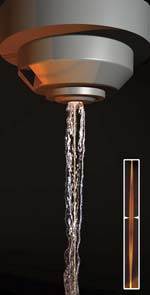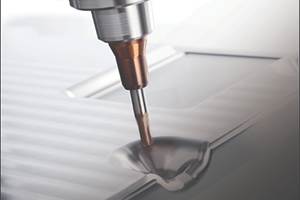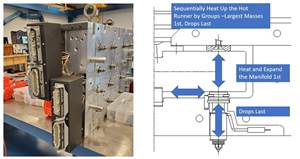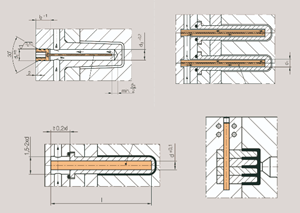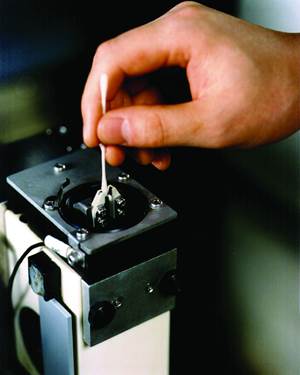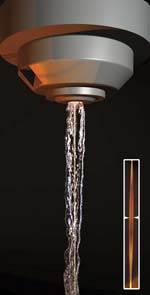EDM Brokers: Providing Matches Made in Heaven
Brokers marry buyers and sellers without using machinery dealers - resulting in both parties making a better deal.
Looking for some used EDM equipment, but are so busy that you don't have the time to find that exact piece of equipment to suit your shop's needs? Perhaps you need to look no further than at an EDM broker - a middleman that can save both the buyer and seller time and money.
So says Doug Watkoski, president of Grand Rapids, MI-based Nutek Sales - an EDM/moldmaking equipment broker who has been in business for two years. "Brokering is the wave of the future," he states. "Everything today is about information - it's simply a matter of having the right information to put the buyer and seller together - and both parties emerge with a better deal."
Broker Benefits
"Going back to my experience as a used machinery dealer, when the dealer is buying a machine and then reselling it, the seller is usually dealing with markups of 40 to 100 percent," Watkoski states. "So, if a seller has a machine that is worth $65,000 to $70,000 on the open market, the typical dealer will try to buy it for $40,000. The dealer then has to get it loaded, rigged and moved to his place. He'll then find an end user that will buy the machine at $65,000 and basically make that margin - less the cost - because there are more costs involved."
An EDM broker will work with the customer who is selling the machine and try to find that same end user, and perhaps can sell the machine for $50,000 from the customer's floor, instead of having to go through all of those other processes. In turn, both buyer and seller end up getting more money - even after the broker's commission. "A machine selling in that range would bring us seven percent commission," Watkoski states. "Then, the end user buying the machine can see it under power, talk to the maintenance people, talk to people that run the machine - and therefore feel more comfortable with the machine."
Watkoski feels that cost is the bottom line. "Most people owe more money on the machine than they can get in the market after four or five years, so they have to recoup as much money as possible," he says. "They are probably going to end up writing a check to the finance company when they do sell the machine."
Plus, since time is money, using an EDM broker saves the seller the hassle of haggling with the machinery dealer over cost. "The broker is doing all of the legwork by doing all of the research like finding out what equipment is selling for," Watkoski comments. "Lots of times customers don't know the fair market value of their equipment, and it's the EDM broker's job to find out. The broker will then work hard to find an end user that seems really interested in the machine and see if there's a strong possibility of a sale. Often the seller will want to talk to this interested party; he doesn't want to waste his time talking to 100 guys that turn out to be tire kickers.
"In fact, we often let the buyer and seller put their own deal together and stay out of the negotiating process if that's the way they want it," he continues. "As a broker, everything with us is up-front - there aren't any hidden deals or large margins."
Out in the Open
Watkoski notes the importance of finding someone who has the ability to get the job done right. "Make sure that they have the clientele and the database to ensure that something can happen," he stresses. "I would look for a broker who would allow the seller to receive the funds from the sale, then invoice the client for his commission. A good relationship is all about that openness - the seller knows that they are getting this check from the person that is buying the machine and they know that there isn't any hidden deal."
Additionally, the seller should know what the commission rate is upfront, and find someone who does not have a fixed fee. "Look for someone with a sliding scale," Watkoski recommends. "Basically, the higher the value of the asset, the less the percentage should be," he says.
As far as disadvantages, Watkoski only sees one, but is quick to point out that the benefits far outweigh it. "A machinery dealer usually gives some kind of warranty or guarantee; and when using a broker, the machine is usually sold as is," he says. "But that disadvantage is outweighed by the fact that they can talk to the maintenance people and see the machine under power, run it under the atmosphere it has been used in, and then make an informed decision. Plus, they are saving a good deal of money in the process."
Related Content
Moldmakers Deserve a Total Production Solution
Stability, spindle speed and software are essential consideration for your moldmaking machine tool.
Read MoreThe Ins and Outs of Hot Runner Temperature Control
A training checklist that explains the why and how of proper hot runner temperature control and system management.
Read MoreFundamentals of Designing the Optimal Cooling System
The right mold components can help improve mold cooling and thereby produce higher-quality parts.
Read MoreMaintaining a Wire EDM Machine
To achieve the ultimate capability and level of productivity from your wire EDM on a consistent, repeatable and reliable basis, regular maintenance is a required task.
Read MoreRead Next
Wear Parts and Consumables: The Keys to Maximizing Your EDM
Mold shops need to pay attention to the potential impact wear parts and consumables can have on their overall production.
Read MoreReasons to Use Fiber Lasers for Mold Cleaning
Fiber lasers offer a simplicity, speed, control and portability, minimizing mold cleaning risks.
Read MoreHow to Use Strategic Planning Tools, Data to Manage the Human Side of Business
Q&A with Marion Wells, MMT EAB member and founder of Human Asset Management.
Read More
